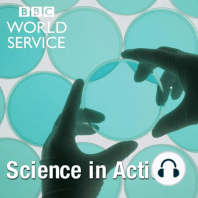30 min listen
Covid -19 origins
ratings:
Length:
30 minutes
Released:
Mar 3, 2022
Format:
Podcast episode
Description
Wuhan's Huanan Seafood Market is associated with many of the first cases or Covid- 19, but data on precisely how and from where the virus might have first spread has been difficult to find.
However a re-examination of the earliest samples collected from the market seem to pinpoint where the virus first showed itself. Sydney University virologist Eddie Holmes says this evidence will be crucial in determining which animals may have initially passed the virus to humans.
Humans are known to have passed the Sars-Cov-2 virus to other animals, including cats, mink and deer. Canadian researchers have recorded the first incident of a modified form of the virus passing back from deer to humans. Virologist Samira Mubareka from the University of Toronto explains the implications.
Chernobyl, the site of the worlds worst nuclear accident is back in the news as the Russian invasion of Ukraine led to a stirring up of nuclear material when troops entered the site. Ukraine has a number of nuclear reactors, Claire Corkhill, professor of nuclear materials at Sheffield University explains the potential risks from the current conflict and safeguards in place.
And we hear from Svitlana Krakovska Ukraine's representative on the Intergovernmental panel on Climate Change, on her thoughts on the prospects for climate action and scientific progress in The Ukraine.
Image: Disinfection Work At Wuhan Huanan Wholesale Seafood Market, China 4 March 2020.
Credit: Zhang Chang / China News Service via Getty Images.
Presenter: Roland Pease
Producer: Julian Siddle
However a re-examination of the earliest samples collected from the market seem to pinpoint where the virus first showed itself. Sydney University virologist Eddie Holmes says this evidence will be crucial in determining which animals may have initially passed the virus to humans.
Humans are known to have passed the Sars-Cov-2 virus to other animals, including cats, mink and deer. Canadian researchers have recorded the first incident of a modified form of the virus passing back from deer to humans. Virologist Samira Mubareka from the University of Toronto explains the implications.
Chernobyl, the site of the worlds worst nuclear accident is back in the news as the Russian invasion of Ukraine led to a stirring up of nuclear material when troops entered the site. Ukraine has a number of nuclear reactors, Claire Corkhill, professor of nuclear materials at Sheffield University explains the potential risks from the current conflict and safeguards in place.
And we hear from Svitlana Krakovska Ukraine's representative on the Intergovernmental panel on Climate Change, on her thoughts on the prospects for climate action and scientific progress in The Ukraine.
Image: Disinfection Work At Wuhan Huanan Wholesale Seafood Market, China 4 March 2020.
Credit: Zhang Chang / China News Service via Getty Images.
Presenter: Roland Pease
Producer: Julian Siddle
Released:
Mar 3, 2022
Format:
Podcast episode
Titles in the series (100)
From batteries to distant worlds: Nobel Prize wins for a range of well-known discoveries by Science In Action
